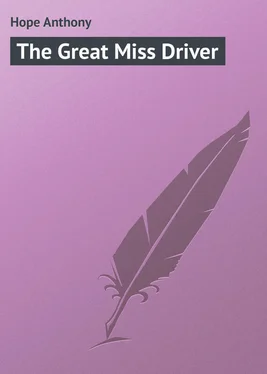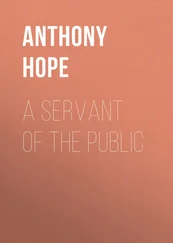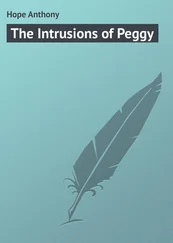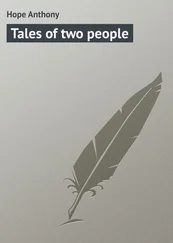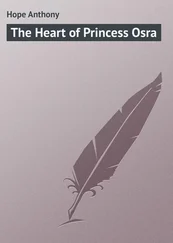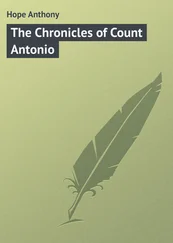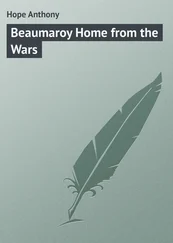Anthony Hope - The Great Miss Driver
Здесь есть возможность читать онлайн «Anthony Hope - The Great Miss Driver» — ознакомительный отрывок электронной книги совершенно бесплатно, а после прочтения отрывка купить полную версию. В некоторых случаях можно слушать аудио, скачать через торрент в формате fb2 и присутствует краткое содержание. Жанр: foreign_prose, на английском языке. Описание произведения, (предисловие) а так же отзывы посетителей доступны на портале библиотеки ЛибКат.
- Название:The Great Miss Driver
- Автор:
- Жанр:
- Год:неизвестен
- ISBN:нет данных
- Рейтинг книги:5 / 5. Голосов: 1
-
Избранное:Добавить в избранное
- Отзывы:
-
Ваша оценка:
- 100
- 1
- 2
- 3
- 4
- 5
The Great Miss Driver: краткое содержание, описание и аннотация
Предлагаем к чтению аннотацию, описание, краткое содержание или предисловие (зависит от того, что написал сам автор книги «The Great Miss Driver»). Если вы не нашли необходимую информацию о книге — напишите в комментариях, мы постараемся отыскать её.
The Great Miss Driver — читать онлайн ознакомительный отрывок
Ниже представлен текст книги, разбитый по страницам. Система сохранения места последней прочитанной страницы, позволяет с удобством читать онлайн бесплатно книгу «The Great Miss Driver», без необходимости каждый раз заново искать на чём Вы остановились. Поставьте закладку, и сможете в любой момент перейти на страницу, на которой закончили чтение.
Интервал:
Закладка:
It was on the tip of my tongue to observe that it was rather late; but a smile on Jenny's lips somehow informed me that she expected just such an objection. So I said nothing.
"Chat and I are going to London to-morrow – to shop. Perhaps we may go on to Paris. I thought you might like to say good-by."
"That's very kind of you. I'm glad we're not to part in – well, as we parted this afternoon."
"If you regretted that, you might have done something to prevent it. Light your pipe again; you'll be able to think better – and I want you to think a little."
I obeyed her direction, she sitting for the moment silent. I came and stood opposite to her, leaning my elbow on the mantelpiece.
"When I first knew Mr. Powers, I was sixteen, and I'd been with the Smalls since I was eleven. You didn't get very discriminating, living with the Smalls. I met him at a subscription dance: I didn't know anything about his wife. He was clerk to an architect, or surveyor, or something of that sort. I met him a good many times afterwards – for walks. He was good-looking in his way, and he said he was in love with me. I fell in love with him and, when I couldn't get away to meet him, I wrote letters. Then I heard about the wife – and I wrote more letters. You know the sort – very miserable, and, I suppose, very silly – that I didn't know what to do, only the world was over for me – and so on. You can imagine the sort of letter. And I saw him – once or twice. He told me that he was in great trouble; he'd been racing and playing cards and couldn't pay; he'd be shown up, and lose his place – and what would become of his wife and child? I flared up and said that I was the last person who was likely to care about his wife and child. Then he suggested that I should get money from my father – he knew all about my father – by saying that I was in some trouble. I told him I couldn't possibly; I was never allowed to write and should only get an answer from a lawyer if I did – and certainly no money. He persisted – and I persisted. He threatened vaguely what he could do. I told him to do as he liked – that I'd done with him for good. I never wrote again – and I never saw him till to-day."
"When you asked him to dinner!"
She smiled, but took no more heed. "Well, I was in a scrape, wasn't I? I saw that clearly – rather a bad scrape. I didn't see what to do, though I did a lot of thinking. Being in a scrape does teach one to think, doesn't it? Then suddenly – when I was at my wits' end – it flashed across me that possibly it might all have happened for the best. My great object all through my girlhood was, somehow or other, to get into touch with my father. I believed that, if I could get a fair chance, I could win him over and persuade him to let me pay him a visit – even live with him perhaps. That was my great dream – and I was prepared to go through a lot for the hope of it. Well, it didn't come off. I don't know what Mr. Powers did – but it was not my father who came, it was Mr. Cartmell. I was taken away from the Smalls, but not allowed to come here. I was sent to the Simpsons. My father never wrote one word, good or bad, to me. Mr. Cartmell gave me a lecture. I didn't mind that. I was so furious with him for coming that I didn't care a straw what he said."
"His coming upset your brilliant idea?"
"Yes – that time. One can't always succeed. Still it's wonderful how often a scrape can be turned to account, if you think how to use it. You're in a corner: that sharpens your brains; you hit on something."
"Perhaps it does. You seem to speak from experience."
"Well, nobody means to get into them, of course, but you get drawn on. It's fun to see how far you can go – and what other people will do, and so on."
"Rather dangerous!"
"Well, perhaps that's part of the fun. By the by, I suppose I might get into a little scrape if I stayed here much longer. Chat would be very shocked – Loft, too, I expect!"
"It is getting on for eleven o'clock."
"Yes." She rose and drew her cloak round her. "Mr. Powers didn't come to dinner," she said. "On reflection, I wrote to him and told him that it was better not to renew our acquaintance, and that he must accept that as my final decision."
"That's something gained, anyhow," said I, with a sigh of relief.
"Something gained for you?" she asked quickly and suspiciously.
"I don't believe I was thinking of myself at the moment."
She looked at me closely. "No, I don't think you were – and there's no real reason why it should make any difference to you. Well, that depends on yourself! Mr. Powers is of no consequence one way or the other. The question is – are we two to try and get on together."
"I got on with your father," said I.
"You didn't tell my father what he was to do and not to do."
"Yes, sometimes – in social matters. It may surprise you to hear it, but your father was always ready to learn things that other people could tell him."
"Well, here are my concessions. Never mind what I said this afternoon – I was in a rage. I won't call you a servant again; I won't make you come to dinner when you don't want to; I won't demand that you meet my friends if you don't want to."
"That's very kind and handsome of you."
"Wait a minute. Now for my side. Mr. Austin, if you're not a servant here, neither are you a master. Oh, I know, you disclaim any such idea, but still – think over this afternoon! You can't stay here as a master. I daresay you think I want a master. I don't think so. If I do, I suppose I can marry!"
"For my own part I venture to hope you will marry – soon and very happily."
"But my father? 'Suspect and fear marriage.' 'You need fear no man except the man to whom you have given yourself.'"
"Your father's experience was, you know, unhappily not fortunate."
Her face clouded to melancholy. "I don't believe mine would be," she murmured. Then she raised her voice again and smiled. "Neither servant nor master – but friend, Mr. Austin?" And she held out her hand to me.
"I accept most heartily, and I'll try to keep the bargain." I put out my hand to take hers, but, as if on a sudden thought, she drew hers back.
"Wait a moment still. What do you mean by a friend? One who likes me, has my happiness at heart?"
"Yes."
"Gives me the best advice he can, speaking his mind honestly, without fear and in friendship?"
"Yes."
A touch of mockery in her eyes warned me neither to take the questions too seriously nor to make my answers too grave. The mockery crept into her tone with the next interrogation.
"When I don't take his advice and get into a scrape, says, 'I told you so. I'm all right – you get out of your scrape in the best way you can?'"
"Call me no friend when I say that," I answered.
"Ah!" she whispered and gave me the hand which she before had withdrawn. "Now really!" she cried gayly, with a glance at the clock. "You go back to sleep – I have to get ready for a journey. No, don't come with me. I'll run up to the house by myself. Good night, my – friend!"
I opened the door for her, answering, "Good night." But she had one more word for me before she went, turning her face to me, merry with a smile and twinkling eyes —
"I suppose you haven't got a wife anywhere, have you, Mr. Austin?" She ran off, not waiting for an answer.
The appearance of Mr. Powers had not cost me my place: but it had defined my position – to Jenny's complete satisfaction! It had also elicited from her some interesting observations on the value of scrapes – the place they hold in life, and how a man – or woman – may turn them to account. I felt that I knew Jenny better for our quarrel and our talk.
CHAPTER IV
AN UNPOPULAR MAN
Miss Driver stayed away longer than her words had led me to expect. London and Paris – the names are in themselves explanation enough. The big world was entirely new to Jenny; though she could not yet take – shall I say storm? – her place in society, much instruction, and more amusement, lay open to her grasp even in the days of her obligatory mourning. On the other hand that same period could not but be very tedious to her if passed at Breysgate. In regard to her father's memory she felt a great curiosity and displayed a profound interest; for the man himself she could have had little affection and could entertain no real grief; in fact, though she professed and tried to forgive, she never shook herself quite clear of resentment, even though she, if anybody, ought to have come nearest to understanding his stern resolve. That nobody should ever again come so near to him, or become so much to him, as to be able sorely to wound him – that was how I read his determination. Jenny ought to have been able to arrive at some appreciation of that. I think she did – but she protested in her heart that his daughter should have been the one exception. No good lay in going back to the merits of that question. In the result they had been – strangers: her mourning, then, was a matter of propriety, not the true demand of her feelings. Viewed in this light, London and Paris, surveyed from the decent obscurity of a tourist, offered a happy compromise – and bridged a yawning gulf – between duty and the endurable.
Читать дальшеИнтервал:
Закладка:
Похожие книги на «The Great Miss Driver»
Представляем Вашему вниманию похожие книги на «The Great Miss Driver» списком для выбора. Мы отобрали схожую по названию и смыслу литературу в надежде предоставить читателям больше вариантов отыскать новые, интересные, ещё непрочитанные произведения.
Обсуждение, отзывы о книге «The Great Miss Driver» и просто собственные мнения читателей. Оставьте ваши комментарии, напишите, что Вы думаете о произведении, его смысле или главных героях. Укажите что конкретно понравилось, а что нет, и почему Вы так считаете.
